Views: 58
Shanghai
Frans Vandenbosch 方腾波 21/10/2025
The paradox of ATMs in China’s cashless society
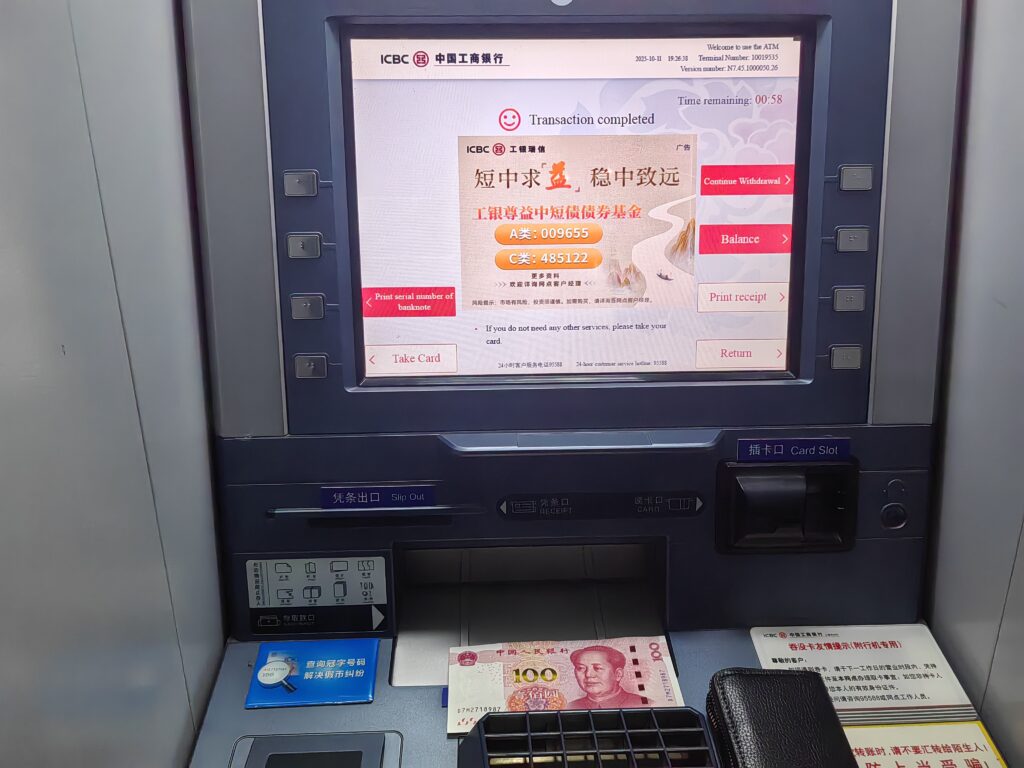
What purpose do ATMs serve in a society that has entirely abandoned cash? During my four weeks in China, I have not used physical currency once. Everything, from street food vendors to hotels or luxury retailers use digital payments seamlessly.
Today, driven by curiosity and a touch of nostalgia, I withdrew a 100 CNY banknote from an old ATM located behind a corner near an ICBC bank branch. I intend to keep this banknote as a souvenir, a tangible relict of an era that has already passed in this part of the world.
What is even more remarkable is that I have not needed my international credit cards either. My Visa and Mastercard have remained unused throughout my entire stay. Even my UnionPay card (China’s domestic credit card network) has sat idle in my wallet. Instead, mobile payment platforms such as WeChat Pay and Alipay have handled every transaction, making traditional banking cards feel as obsolete as the cash itself.
China’s transformation into a cashless society is not merely about convenience, it represents a fundamental shift in how people interact with money. The ATM I visited today, once a symbol of modern banking, now feels like an artefact from another time, quietly serving a function that fewer and fewer people require.

Shanghainese language
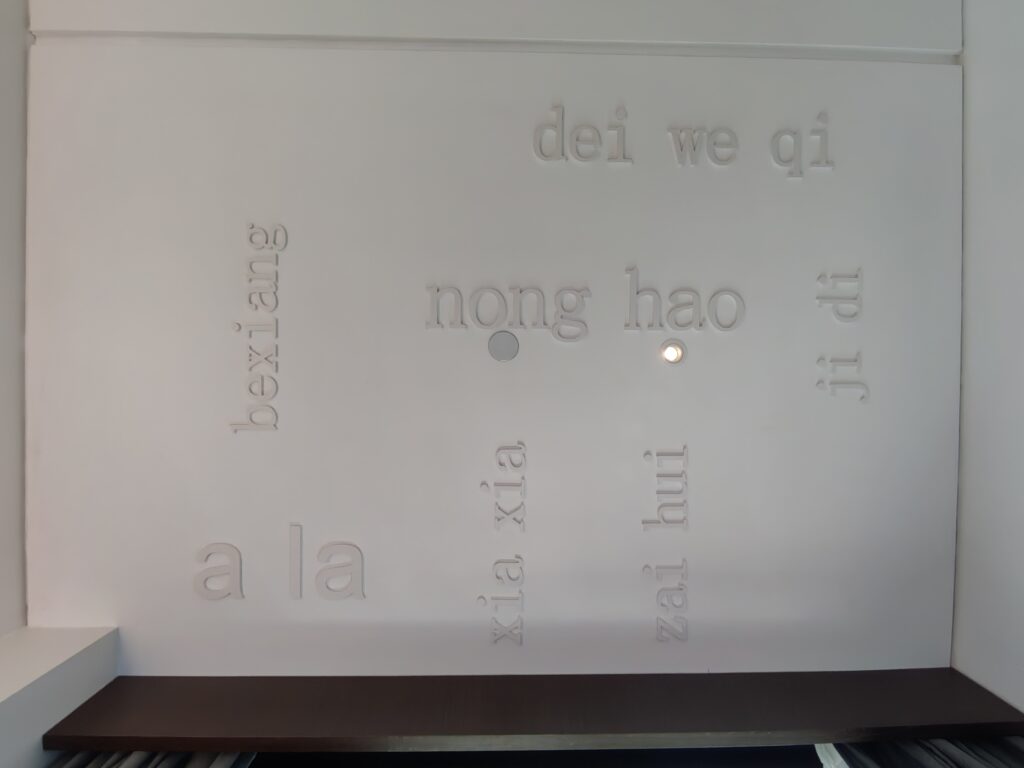
The ceiling of our hotel room is decorated with Shanghainese local language expressions.

The Shanghainese language belongs to the Wu language family in the same way as Suzhounese and Wenzounese (the language of most of the restaurant owners in Europe)
The Wu language is a brother (or sister) language of Mandarin (the official language of China, spoken by ~75% of the population of China), Min, Hakka, Yue (= the Cantonese dialect), Xiang and Gan. They’re all in the Sino-Tibetan language family.
“Brush talk” (筆談, bǐtán) is using written Hanzi to bridge mutually unintelligible spoken dialects is a deeply rooted practice in Chinese culture. Up to two decades ago, one could see people using a small book to write Chinese characters (Hanzi) if they couldn’t understand each other’s local spoken language. These days, most of the local language speakers can also speak and understand Standard Mandarin (Putonghua)
The Chinese government is promoting the conservation of local languages through national policies that emphasize the protection of linguistic diversity. Recent guidelines advocate for “maintaining subject-diverse, harmonious, and orderly language and cultural ecosystems” and nurturing local language talents in rural areas. Furthermore, the education law stipulates the implementation of bilingual education in ethnic minority areas, using both Mandarin and local languages. These efforts are also supported by national strategies to advance language informatization, fostering the digital development and application of language resources.
In Xizang (Tibet) and Xinjiang (Uygur Autonomous Region) education is in the local language with Standard Mandarin as a second language. In Dongbei (Manchuria) and Nei Mongol (Inner Mongolia) the local language is almost extinct. In Guangxi Zhuang Autonomous Region, there are only a few schools left where they teach in the local language.
All minority languages are under pressure; students all want to master Standard Mandarin because of the much better job prospects. The Chinese government promotes a dual approach: it encourages the revival of local languages and simultaneously guarantees nationwide proficiency in Standard Mandarin.
Technology transfer to China

This is “my baby”
Read the full story here: I don’t want to steal your baby

Today, 11 years after the technology transfer to Fuyao, I can see “my baby” (the technology developed by me and my team) applied by Fuyao to almost all the Chinese car brands, also BYD and Tesla Shanghai.
The technology was transferred to China because of the unwillingness of MAGNA to make a small investment in China. It wasn’t China who has stolen the technology, it was the short term vision of MAGNA who forced Mercedes Benz to transfer the technology to Fuyao.
Suntop Colin Zhao
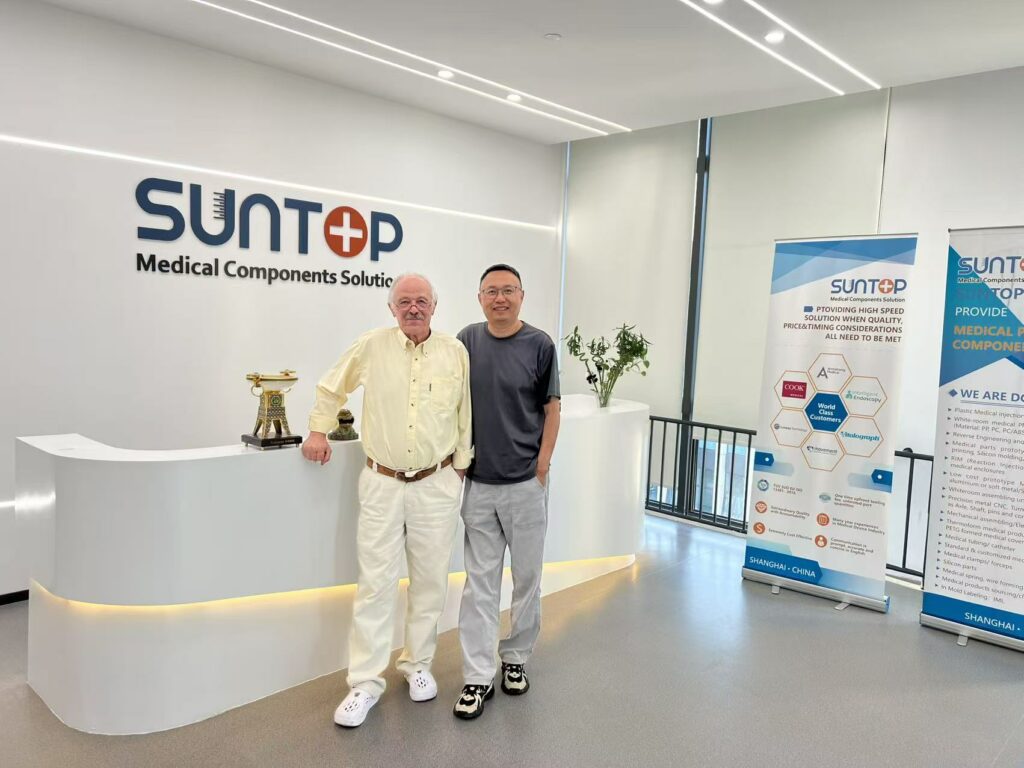
The primary purpose of my visit to Shanghai is to meet with Colin Zhao, founder and owner of Suntop, , a well-established medical device company in Songjiang, Shanghai.
We are working together to launch a dedicated production line at Suntop to manufacture stoma devices for an European healthcare company.
A stoma device is a medical pouch that collects waste from a surgically created opening (a stoma) in the abdomen. It is used when the bladder or bowels cannot function normally, allowing a person to dispose of waste discreetly and hygienically. These devices are essential for individuals who have undergone procedures like a colostomy, ileostomy, or urostomy.
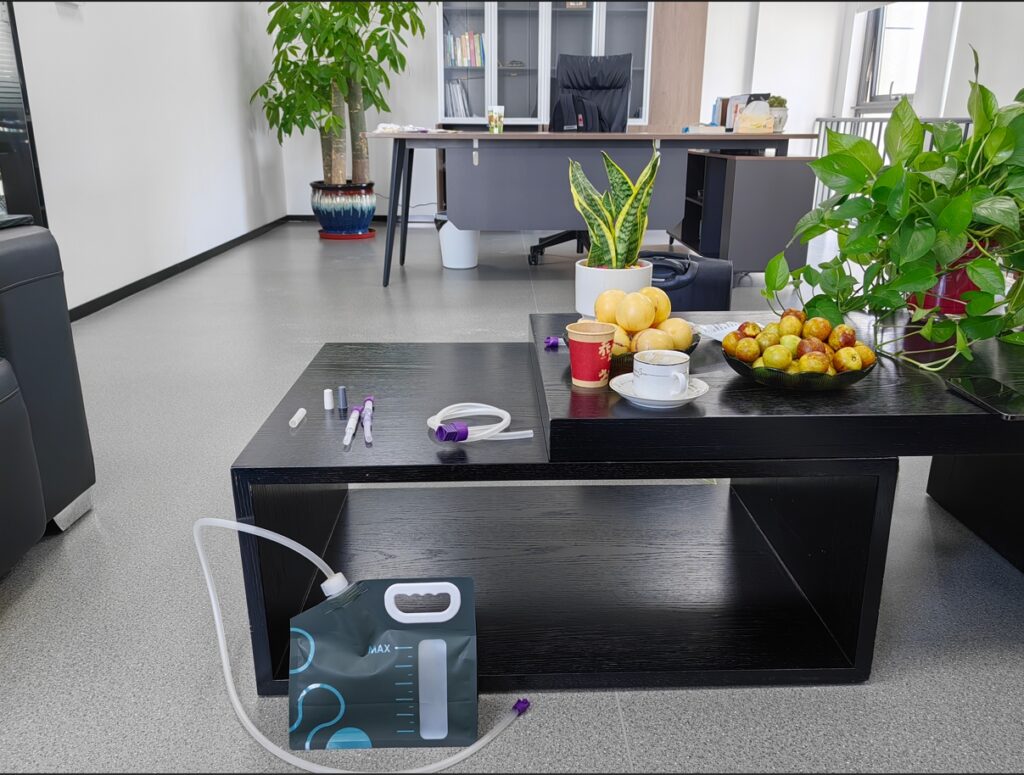
HSBC
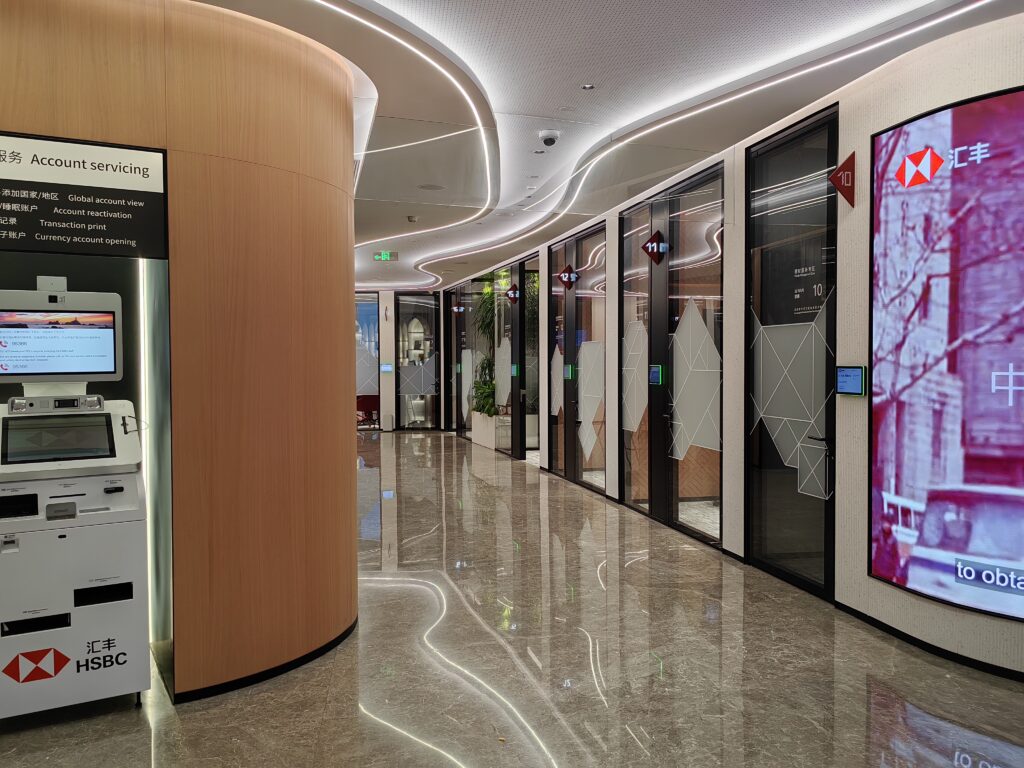
HSBC, (Hong Kong Shanghai Banking Corporation) founded in Hong Kong in 1865, has been central to China’s financial history, financing trade and managing key government operations. Its historical influence was significant, though complex.
Today, operating in a competitive modern market, HSBC faces challenges. This is illustrated by its recent decision to close most of its onshore credit card business in China after struggling with growth. Competition between the banks in China is tough and ruthless.
The Meng Wanzhou (Huawei) affair significantly strained the relationship between the Chinese government and HSBC. The core of the tension was China’s assertion that HSBC had conspired with the U.S. government in a “political persecution” of a Chinese citizen, which placed the bank in a difficult position between its Western legal obligations and its massive business interests in China
HSBC has branches in some 50 Chinese cities, almost all focussed on wealth management. HSBC is the largest foreign bank in China. Their ATM’s are not connected to the Chinese ATM network.
Compared to the large Chinese banks, HSBC’s presence in mainland China is peanuts:
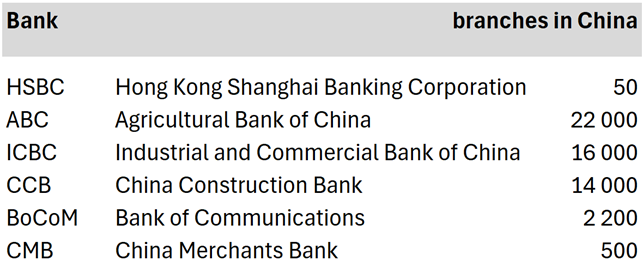
There are some 200 different licenced banks (brands) in China, a mixture of policy banks, state owned banks (the “big four”), national commercial banks, urban & rural commercial banks, internet banks and foreign banks. HSBC has its offices in the most prestigious towers of the city. This is the HSBC branch in Xujiahui, Shanghai:
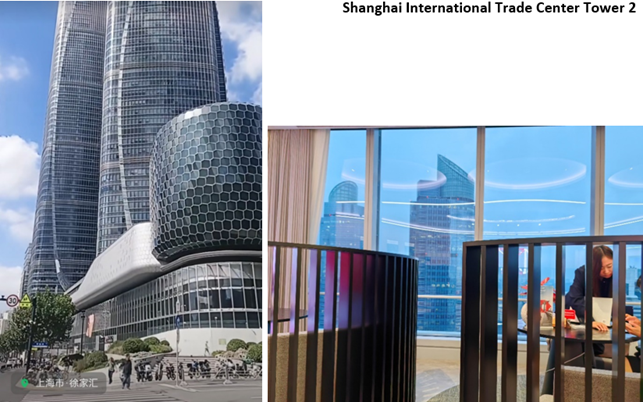
Chinese pastries
Yummy !
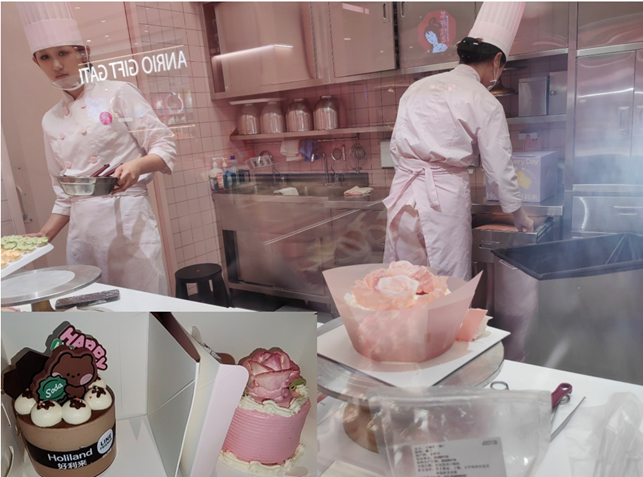
Chinese handmade pastries are edible works of art, often sculpted into intricate floral and animal shapes that resemble delicate miniature sculptures. Their excellent taste is a harmonious balance of subtle sweetness, flaky textures, and sophisticated fillings like red bean, lotus seed, or jujube. Each piece is a testament to a deep culinary heritage where aesthetic beauty and refined flavour are in perfect, delicious harmony.
Can you even imagine that I, here in China very much enjoy the real freedom and democracy in this country ?
…the freedom that I miss so much in Western Europe.
Can you imagine that ?
Thank you for reading! We’d love to hear your thoughts. Please share your comments here below and join the conversation with our community!
本文中文版:…..
Dit artikel in het Nederlands: Azië reis 2025 – deel 6


